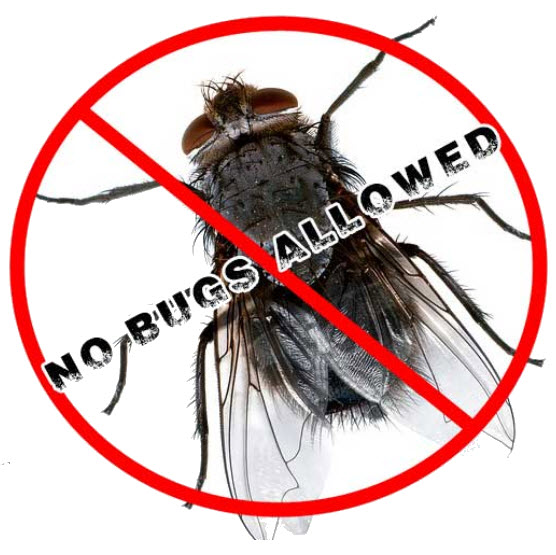Unless you’re into studying insects, you undoubtedly despise being in the presence of bugs, especially if they bite. Although these organisms perform necessary functions in the ecosystem, they may be a significant annoyance to people when they are outside, and some of the diseases they carry can be passed on to humans.
Your favourite bug spray from the store can keep them away for a while, but what will you do when the OFF! can is empty? What if you’re in a survival situation and the insects refuse to leave you alone? Fortunately, there are non-chemical alternatives to conventional pest sprays.
Create Your Own Bug Repellent
Make sure you are prepared for your trip into the wilderness by making your own insect repellent out of components that you are comfortable with. While it is not the most effective solution, you can manufacture your own bug repellent using essential oils and other household items. Obtain the essential oils by visiting a health food store or a similar establishment (or order them online).
- 25 drops of tea tree oil
- 25 drops of lavender essential oil
- 1 pint distilled white vinegar
- 1 pint water
- A one-quart spray bottle
Tea Tree Oil
Lavender Essential Oil
Vinegar
Water
Spray bottle
Shake thoroughly after adding the items to a clean spray bottle. Before going outside, liberally treat your boots, clothes, and skin with spray. For optimal results, reapply every two to four hours.
Make Use of Natural Plants as Pesticides
Some plants are highly regarded for their ability to deter insects, and we’ve included a short list of some of these here.
Lavender
Lavender is renowned for its ability to ward off pests including mosquitoes, fleas, flies, and moths, in addition to its aesthetic and aromatic qualities.

Basil
Although we all enjoy the scent of basil, flies, moths, and mosquitoes do not. Use basil to keep flies and moths away from your RV, and crush some leaves to rub on your skin to keep mosquitoes away when you go outside.

Thyme
This plant, which has numerous varieties, is a fantastic ground cover for rocky, arid locations. Thyme will aid in deterring mosquitoes from your camping area.

Mint
Mint is an another great mosquito repellant, but it should be used with caution because it multiplies fast and can overrun an area. Place it close to doorways and plant it in pots.

Lemongrass
Citronella, one of the most well-known natural repellents and an alternative to synthetic repellents like DEET, is abundant in this lovely grassy plant. Rub the skin with the crushed leaves.

Alliums
This onion family member is recognized for its long spikes that produce enormous balls of purple blooms (although there are also smaller varieties). Pests like cabbage worms, aphids, carrot flies, and slugs don’t like the smell of alliums, which makes them a good defence against them.

Chrysanthemums
To keep bedbugs, fleas, lice, roaches, ants, and other pests out of your RV, plant these flowers as a border around it. These plants naturally contain the pesticide pyrethrin. Ticks, spider mites, Japanese beetles, and other pests are repelled by them.

Marigolds
One of the most well-known plants for repelling insects is the marigold, and for good reason: marigolds have a smell that deters pests like mosquitoes, nematodes like cabbage worms, and other pests. To draw beneficial insects that attack and eliminate aphids, use marigolds. Aphids are a favourite food of ladybugs.

Smoke the Bugs Away
In the evening, people often use smoke made from burning various types of plants or wood as a low-cost method of repelling mosquitoes. Many people are unaware that building a campfire, which is one of the first things we do when we go camping, is a great method to keep insects at bay.

Smoke will saturate the air, producing an unpleasant atmosphere, and for insects like mosquitoes, it will make it difficult for them to fly through the air. The tiny particles in smoke, as well as some compounds found in wood smoke, are not conducive to mosquito activity. Consequently, most pests, including mosquitoes, will prefer to avoid areas where there is smoke and heat.
Most people agree that burning dry wood is preferable since it burns more easily. Having somewhat damp wood will assist because more smoke is preferable when it comes to getting rid of bugs.
Burning eucalyptus, sage, or rosemary are some more methods for using a campfire to get rid of mosquitoes. Insect repellents frequently contain the naturally occurring active component eucalyptol, which is found in the bark of eucalyptus trees. We advise purchasing a few bunches of rosemary or sage from the grocery store when utilizing these herbs. These items can generate more smoke and emit an odour that repels insects.
Egg Cartons and Coffee Trays
Save all your egg cartons and the coffee trays you get from the fast food drive-through. Believe it or not, they are quite effective at preventing mosquitoes from entering your camping location. The idea is to ignite it and then wave it around until the flame goes out. After that, place it on the ground around your sitting area and let it smoulder. The carton will burn gently and flamelessly, creating a mild smoke.
Although the odour given off by the burning egg cartons and coffee trays might not strike you as particularly potent, it will be enough to keep mosquitoes at bay. This approach is safer than using candles, especially during the dry season, because there is no open flame involved in the process.

Burn Coffee Grounds

Most insects possess a keen sense of smell. The aroma of coffee is offensive to a wide variety of insects and will drive them away. You can use either fresh or used coffee grounds, but unused coffee grounds are going to be more efficient in keeping bugs away.
The Environmental Protection Agency claims that burning coffee grounds maximizes its effectiveness. Although both fresh and old coffee grounds can be utilized, unused coffee grounds have a greater effect. All you have to do is put the coffee grounds in a bowl on a flat surface outside and burn them like incense.
When coffee grounds are ignited, they provide a smouldering effect that repels insects.
In Conclusion
These are incredibly simple, cost-effective and effective ways to get rid of all kinds of bugs. Give them a try next time you are out camping, you won’t regret it!




